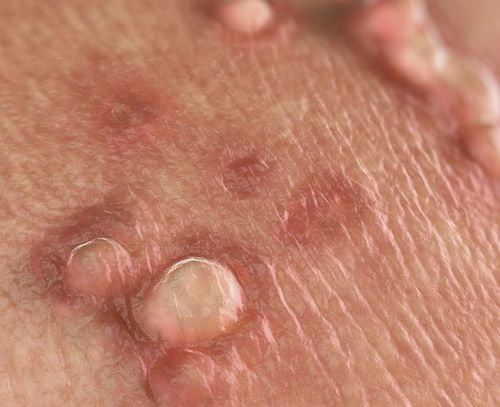This article was professionally consulted by Dr. Le Thi Phuong, Specialist level I, Obstetrics and Gynecology - Obstetrics and Gynecology Department, Vinmec Ha Long International General Hospital.
Nowadays, the frequency of different types of gynecological surgeries is increasing, with some procedures such as cosmetic surgeries on the intimate area becoming more popular, catering to societal demands. Usually, women are instructed by their surgeons on how to care for themselves after surgery. These instructions aim to minimize complications or detect them early and support the recovery process. This article provides information to help answer common questions about post-operative care in general, with a particular focus on perineal hygiene after surgery.
1. How to Clean the Intimate Area After Surgery
Immediately after waking up from surgery, patients often still have a urinary catheter draining urine from the bladder into a collection bag, sometimes accompanied by a pad or sanitary napkin to absorb any discharge and blood from the vagina. The doctor typically advises the patient to rest in bed for a certain period, depending on the case, usually ranging from 8 to 24 hours. During the postoperative period, it may be difficult for the patient to clean the intimate area independently. The patient should be assisted by family members or healthcare staff at the hospital. During this time, patients should:
- Clean the surgical wound in the intimate area using saline solution, as directed by the doctor.
- Gently dry with a clean towel.
- Change sanitary pads or protective pads frequently, about 2-3 times per day, to avoid odor and increase the risk of infection in the intimate area.
- Observe the wound (color, stitches, discharge) and the discharge from the vagina (color, quantity).
Vaginal bleeding after surgery is normal. Initially, the blood is bright red, then turns to a dark red and brown color. The amount of blood may vary from day to day. When walking, patients may feel more blood flow. This is normal as long as there is no bright red blood. The bleeding will gradually reduce over a few weeks after surgery. If bright red blood appears in large quantities, the patient should see the doctor as soon as possible. Cleaning of the intimate area should continue during this period with similar principles. Clean the area with clean water and dry it with soft paper after each use of the restroom or when changing sanitary pads. Avoid using rough paper or rubbing the area that is injured post-surgery.
As bleeding decreases, the patient may notice some creamy white discharge. This can persist for up to 8 weeks. This discharge is formed from the dissolution of the stitches inside the vagina. It is important not to use tampons during the first 6 weeks after surgery. Use sanitary pads instead.
After surgeries on the vagina, women may have internal stitches in the vaginal wall. These do not need to be removed, as they dissolve on their own, typically within six weeks. It's normal for there to be mild vaginal bleeding or discharge that appears pink or brown and turns yellow as the stitches dissolve. At this time, you may see some stitch fragments on your underwear or toilet paper. The task at this point is to remove them and clean the intimate area thoroughly.

2. Other Concerns After Surgery on the Intimate Area
2.1 Preventing Deep Vein Thrombosis
The risk of developing deep vein thrombosis (blood clots in the veins of the legs) increases when the patient remains inactive for long periods, such as during and after surgery. To reduce this risk, special devices may be placed on the patient's lower legs to regularly compress the legs, helping to prevent blood clots from forming in the legs or lungs. Blood thinning medications may also be prescribed, and compression stockings may be recommended. After surgery, try to do simple exercises such as rotating the ankles, bending, and stretching the legs several times each hour. Avoid crossing your legs. To prevent blood clots from forming in your legs or lungs, it is important to get out of bed and walk as soon as possible after surgery. Try to walk 3-4 times a day.
2.2 Pain After Surgery
After surgery on the intimate area, you may experience pain or discomfort in the groin, vagina, and lower abdomen. You may also feel sharp pain in the buttocks. The pain will gradually lessen over weeks and may take several weeks to completely subside. During this time, you will be given pain relief medications. However, do not abuse painkillers, and do not wait until the pain becomes too intense to take the medication. If you experience severe pain that doesn't improve after taking medication, contact your doctor. Your doctor can advise you on additional preventive measures based on your personal risk of developing blood clots.
2.3 Bladder Function After Surgery
Approximately 5-10% of women experience difficulty emptying the bladder completely after surgery. This may be due to swelling or other reasons and usually disappears after a few days to 2 weeks. Since the bladder still needs to be emptied during recovery, a urinary catheter may be placed, or the patient may be taught how to self-catheterize during this period. Typically, you may take longer than usual to empty your bladder compared to before surgery.
2.4 Digestive Function After Surgery
Constipation is a common issue after surgery. It is important to avoid straining too much during bowel movements, as this can put pressure on the vaginal stitches. Try to eat plenty of fruits, fiber, and drink plenty of water to keep the stool soft after surgery. Stool softeners and laxatives are often prescribed after surgery to help prevent constipation.
2.5 Showering After Surgery
You can shower as soon as you need. Many people shower the day after surgery. Avoid soaking the surgical area in water for too long. It's recommended to take showers during the first 6 weeks after surgery while the vaginal stitches are still fresh.
2.6 Eating After Surgery
You can eat as usual once you regain your appetite after the surgery. You can eat any type of food you want, but focus on nutritious foods to help your body recover. Try to eat foods rich in protein and fiber. Drink plenty of water to keep the stool soft (about 2 liters per day).
2.7 Exercise After Surgery
Walking is a good form of exercise because it places minimal stress on the surgical wound, strengthens the lungs, and helps prevent deep vein thrombosis. Start by walking outside your hospital room the day after surgery. After discharge, continue walking daily around your house or neighborhood.
Pelvic floor exercises are generally safe to start when you feel ready, usually 1 to 2 weeks after surgery. Discuss this with your doctor.
Other exercises: Do not attempt to exercise to build strength for at least 6 weeks after surgery. Avoid lifting or carrying items heavier than 9kg (such as children, heavy bags, etc.), and avoid high-impact exercises (such as running, gym workouts, weightlifting, horseback riding, etc.). These activities place pressure on the incision site before it has healed fully, which can delay the healing process and increase the risk of prolapse.
2.8 Sexual Intercourse After Surgery
Avoid vaginal intercourse or inserting anything into the vagina for at least 6 weeks after surgery. Vaginal stitches can be damaged if you insert anything into the vagina during this time. Your doctor will assess you at your post-operative check-up and inform you when it is safe to resume vaginal intercourse. When you do resume vaginal intercourse, you may feel some discomfort initially, so take things slow and gentle. The use of vaginal lubricants is recommended. If intercourse is still uncomfortable after 3-4 months of regular intercourse, seek advice from your doctor.

2.9 Returning to Work After Surgery
Most patients return to work after about 6 weeks. This may vary depending on the surgery, recovery rate, and type of work you do. You may want to start with lighter tasks when you first return to work, especially if your job involves standing for long periods or lifting heavy objects. Your healthcare team will discuss this with you.
=> Advice from Dr. Lê Thị Phương, Specialist I, Obstetrics and Gynecology - Obstetrics and Gynecology Department, Vinmec Ha Long International General Hospital: After 24 hours post-surgery, if the patient still experiences pain at the incision site, intimate area care should be performed by healthcare staff.
In reality, for surgeries to be safe and carry minimal risks, they should be performed by a skilled doctor in a suitable environment. Therefore, it is essential to choose reputable hospitals and medical centers with modern equipment and skilled professionals.
Please dial HOTLINE for more information or register for an appointment HERE. Download MyVinmec app to make appointments faster and to manage your bookings easily.
To arrange an appointment, please call HOTLINE or make your reservation directly HERE. You may also download the MyVinmec app to schedule appointments faster and manage your reservations more conveniently.









